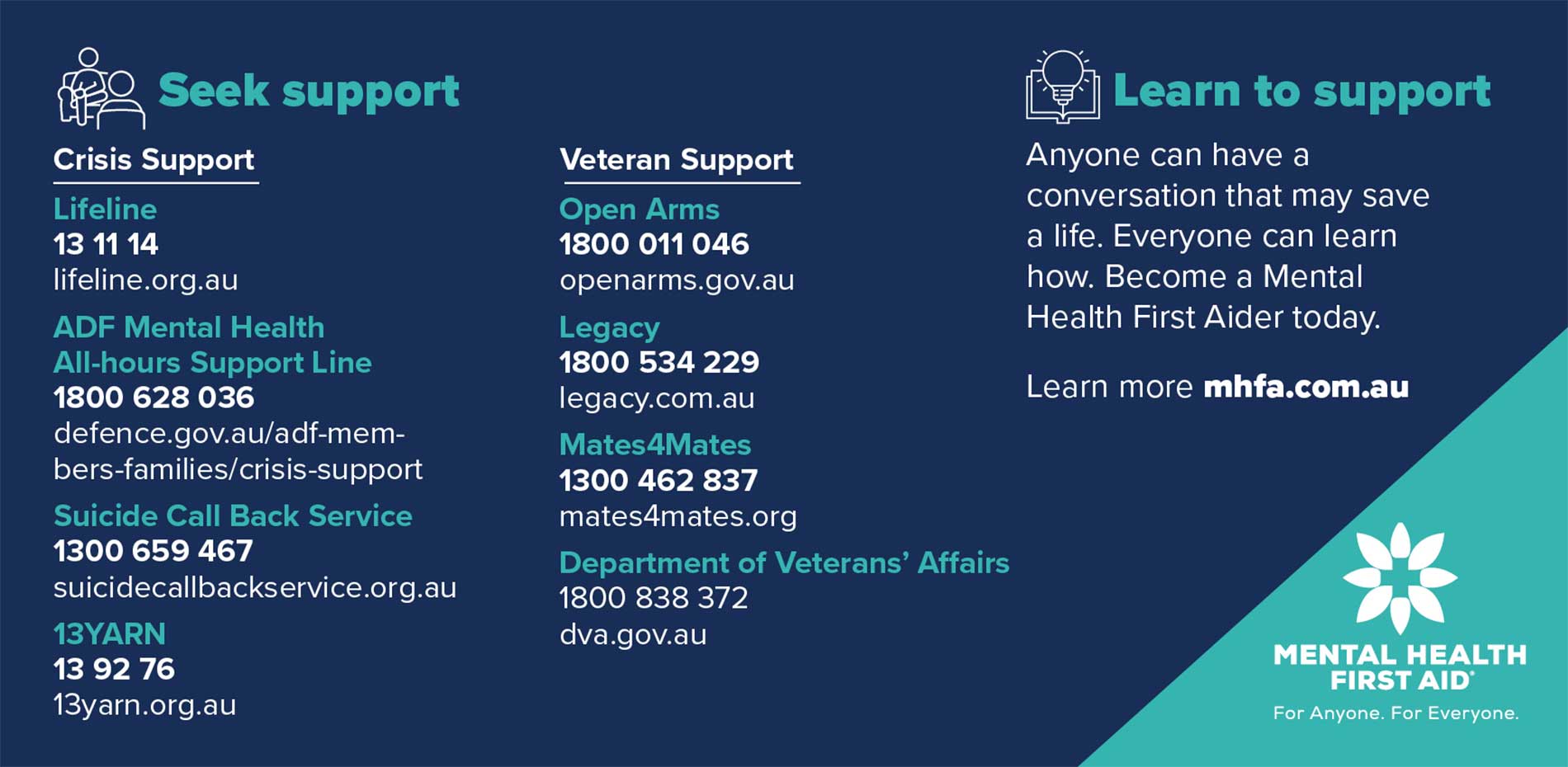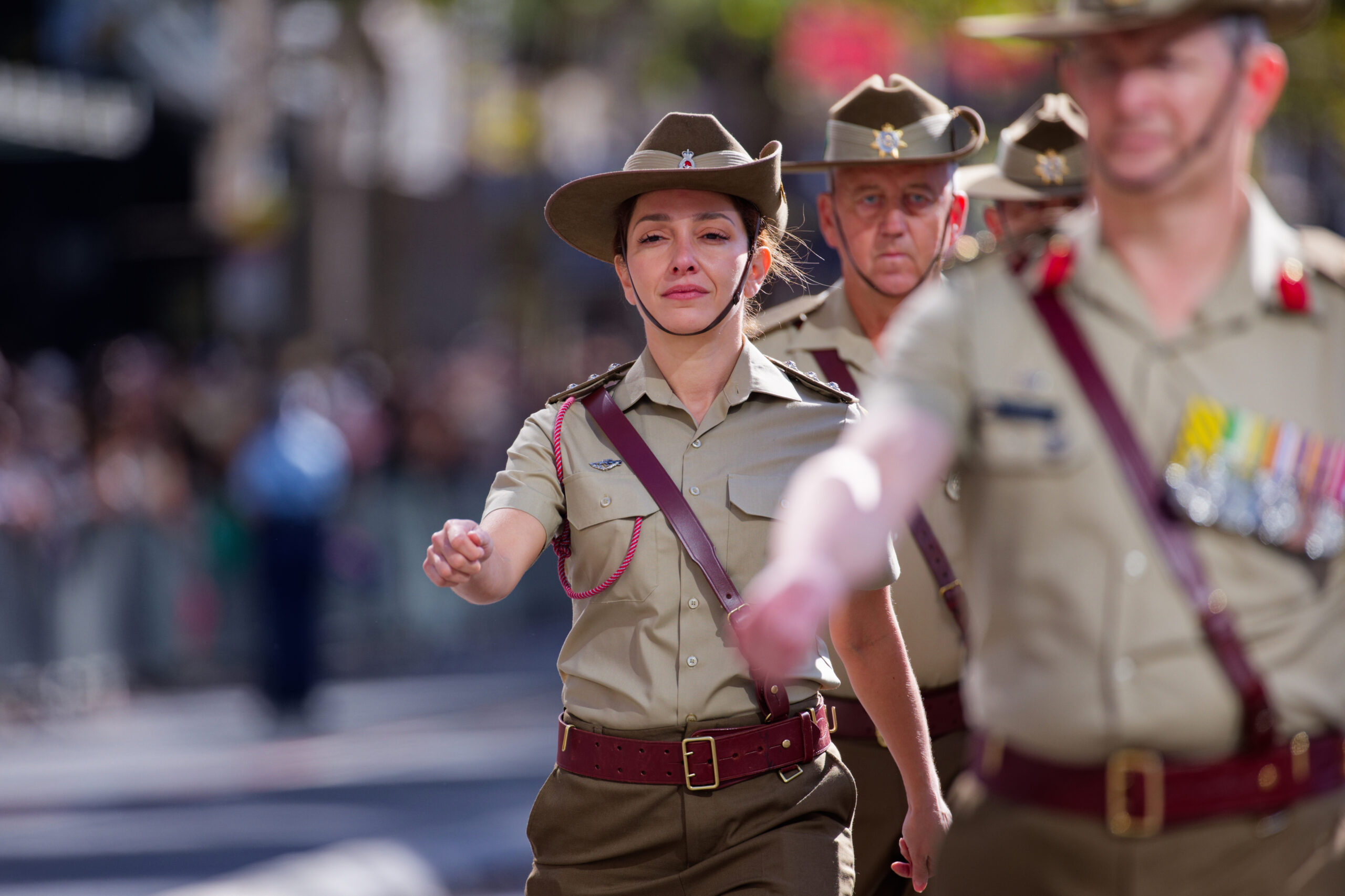24 April 2025: As the nation marks Anzac Day, Mental Health First Aid is calling on veterans, serving defence personnel, their colleagues, and their families to access free training through its Mental Health Protect program.
With the findings of the Royal Commission into Defence and Veteran Suicide highlighting the urgent need for stronger mental health support, the federally funded Mental Health Protect program is designed specifically for those in the defence and veteran community, recognising the unique pressures of service and the critical role of early intervention.
“We’re more likely to come across a colleague in mental health distress than we are having a heart attack, yet so many of us are trained in physical first aid,” Marc Bryant, Executive Director, Strategic Relations and Advocacy at Mental Health First Aid, said. “Mental Health Protect provides mental health first aid skills, enabling anyone to have the confidence to have a conversation that may save a life.”
AIHW data shows suicide rates for male veterans are 27 per cent higher than for the general population, highlighting that action is urgently needed.
“Mental Health Protect is one way we can respond immediately. It gives veterans, serving members, and their support networks the skills to spot the signs of distress, have safe and supportive conversations, and link someone to help before they reach a crisis point.”
Mr Bryant said the Protect program works best in partnership with trusted grassroots organisations.
“We’re proud to be working alongside groups like Talk2MeBro, Men’s Shed and Spoke to a Bloke, who are already embedded in the veteran community. They know the realities, they speak the language, and they’re trusted amongst the veteran community, that’s how we make the training stick and help save lives.”
The Protect courses are fully funded and available nationally, delivered in partnership with Living Works and ex-service and veteran support organisations. They build practical mental health and suicide prevention skills in a culturally aware and trauma-informed way, using evidence-based MHFA training tailored to the defence community.
Jack Brown, an Army veteran and President of Talk2mebro, a mental health organisation founded in honour of his cousin who died by suicide, said MHFA training has been transformative in his own life and in the lives of those he now supports.
“I lost my cousin, who was like a brother to me, in 2018, and it flipped my life upside down,” Jack said. “We started Talk2mebro as a way to honour him and build awareness, but it’s grown into something so much more. MHFA has been a big part of that journey. We now train our team and custodians through MHFA, and three of us have become accredited facilitators.”
Mr Brown said the training is life-changing for veterans and serving members alike.
“I struggled a lot after my cousin passed away, drinking, gambling, just trying to get through the day. The tools in the MHFA course helped me, and now we’re helping others. It’s practical, it’s evidence-based, and it actually works. In the military, it’s not a matter of if you’ll come across someone in crisis, it’s when. We should be giving every recruit this training as standard.”
Marc Bryant agrees the program is a vital part of Australia’s broader response to the mental health challenges facing those who have served.
“This isn’t about replacing clinical care, it’s about building a culture of care around our defence personnel,” he said. “The Protect program gives people real tools, real strategies, and the confidence to act early.”
“Early intervention ensures a trickle-down effect to services that are ready to respond, such as GPs, medical walk-in centres and Lifeline, and a trickle-up effect so people engage with early intervention, connecting with support early and keeping well.”
For more information about Mental Health Protect and to find a free course near you, visit www.mhfa.com.au/mental-health-protect



